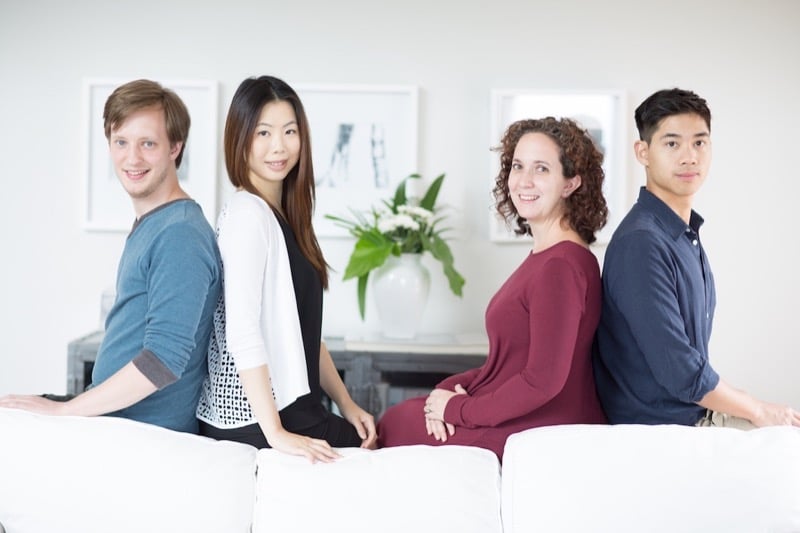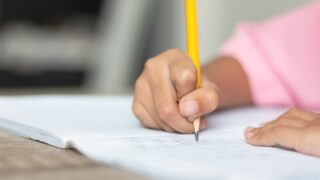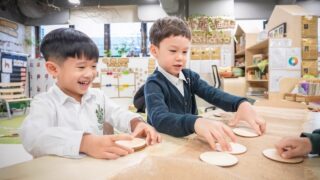You’re weighing up a move to Hong Kong and, if you have children, a major factor to consider is their education. There is a huge range of international schools to choose from, offering different types of curricula and structures. But it can be overwhelming to work out how to support your child to settle into school in Hong Kong and find the place where they will flourish.
Jerome Barty-Taylor is managing director of BartyED, which offers tailored tutoring and educational consulting to children of all ages. The company specialises in providing support for gifted children and students with learning differences. It also offers academic extension support and exam tutoring. Here Jerome shares his thoughts on helping children adapt to Hong Kong’s diverse international school system.
1. What are some of the key adjustments students have to make when coming to Hong Kong?
Students face a variety of issues when coming to school here. As well as the wealth of opportunity that Hong Kong offers young people, there are also potential emotional and academic consequences.
Younger children in the first three years of primary often adjust the most easily. Older teenagers (around 16 or over) are also more resilient. Students aged 8 to 15 are normally the ones who struggle most. Parents should monitor transition at this age carefully.
The academic adjustments required depend on the child and into which system they transition. Broadly-speaking, students entering the UK system after Year 4, the International Baccalaureate (IB) Primary Years Programme (PYP) or Middle Years Programme (MYP) at any stage, or the American system after eighth grade tend to struggle.
Parents also need to adjust their expectations as schools in Hong Kong usually provide less frequent formal feedback than those at home. All schools will be happy to provide feedback but the onus is usually on parents set up a meeting when required.

2. Does the country of origin impact on how a child adapts to the Hong Kong school system?
Students coming from the US primary system are generally good at abstract, conceptual thinking but may be behind UK-educated peers in spelling and grammar. At middle and high school level, they may struggle transitioning into an IB or UK system where instead of continuous assessment, they are expected to work independently to prepare for final exams.
Students coming from Australia will generally find the classroom environment more formal in Hong Kong schools; teachers might also seem less approachable. They may also find the open-ended nature of IB enquiry-based learning challenging.
Students from UK and Europe also struggle with this. In later high school they may also particularly struggle transitioning into the American system where science courses contain a deeper level of abstraction, and humanities subjects expect an appreciation of the writer’s craft, which is rarely taught until the final year of their previous system.
3. How best can you support your children to adapt to school in Hong Kong?
Be pro-active and involved in your children’s education during the first months. Monitor homework, test reading, ask your child to describe what’s happened in school. If primary-aged children are unable to relate any detail of their day, then this is a concern. For younger children, pick them up from school to begin with, if possible; it’s amazing how often a teacher might flag an issue in passing.
For older children it can be a fine balancing act. Open-ended, non-judgemental questions can help facilitate constructive dialogue (e.g., “Tell me about how you found maths class this week? Did you feel like you were on top of everything?”) Often older students feel inhibited about asking for help in a new environment. Help them draft an email to a teacher as a first step to promote independent learning.

4. What things do expats with a child starting school in Hong Kong need to consider?
Sometimes a contract is renewed unexpectedly and parents must suddenly think about primary schools. Think very carefully about future plans and the best option for the child. Our recommendation is always to choose the primary school that has suitably rigorous instruction in the ‘three Rs’ (reading, writing and arithmetic). Old-fashioned as this sounds, a secure primary foundation is essential for future success. Too often we are referred students who have made a number of transitions during primary (or attended an insufficiently rigorous one) who by the age of 11 require urgent intervention.
5. What kind of services can a tutor offer to help with this transition?
Tutors are most helpful when something in the transition has been unexpected. Primary-aged children sometimes find themselves in a different learning environment and can begin to regress. No student can succeed independently in secondary without the ability to formulate competent sentences and follow mathematical first principles. Students aged 9 to 13 years form the bulk of our referrals in such cases.
At secondary level, it’s often a change in curriculum that challenges students. Transitioning into the IB MYP programme after a more structured UK primary system often requires support. Similarly, students who join more rigorous composite maths classes in the US system often need an extra hand. The role of the tutor in such cases is to be a mentor first and instructor second. At BartyED, we are loath to create a dependency on tutors; rather, we help students to develop the skills to succeed independently.
BartyED’s qualified staff can help with homework, or provide tuition in all pre-tertiary subjects with expertise in IB, AP, HSC and standardised testing. They also deliver personalised admissions consultancy for top-tier schools. For more information, contact enquiries@bartyed.com.
Written in collaboration with:
Barty Education and Development Limited (BartyED)
1/F, New East Sun Building, 18 Shing Yip Street, Kwun Tong
Read more about education in Hong Kong in our Schools section.
Does your child need a tutoring program tailored to their needs?





